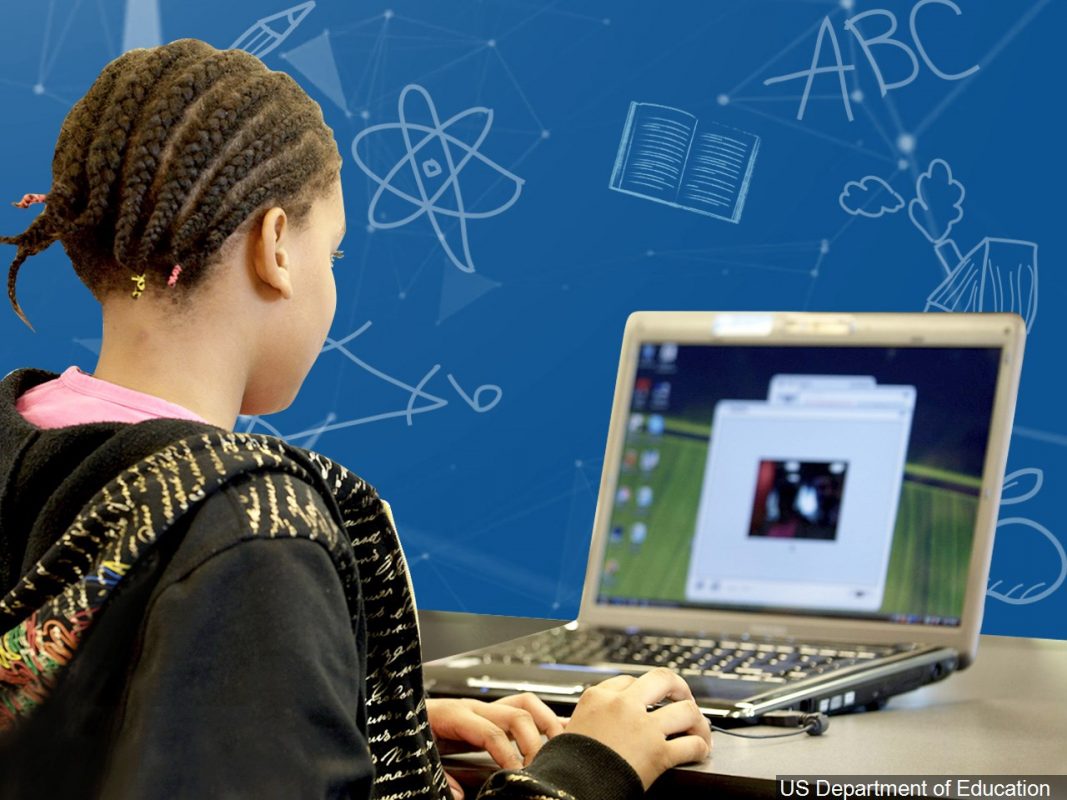(Jamaica Gleaner) Limited parental supervision and an emerging role reversal have hobbled the transition to online classes since the shuttering of schools nationwide, with Jamaican teachers reportedly the targets of nude images and other inappropriate content shared by their students.
That revelation came from Owen Speid, president of the Jamaica Teachers’ Association (JTA), who expressed concern that the failure to streamline and monitor online programmes has compromised the learning environment.
Online classes have somewhat flattened the traditional structure of pedagogy since the emergence of the new coronavirus in Jamaica on March 10, with students no longer subject to the stentorian roar and piercing stare of tutors in a chalk-and-blackboard framework. Now, all eyes – including the teacher’s – jostle for space on laptops, tablets, and cell phone screens in a learning paradigm worlds away from convention.
President of the Jamaica Teachers’ Association, Owen Speid.
There are also concerns that teachers have not been schooled in exerting their authority remotely, presenting new challenges to their command, including the sharing of lewd photos and videos to their personal phones.
This development has turned the spotlight on the new normal of many parents and guardians – juggling the responsibilities of part-time lesson superintendence, working remotely themselves, and ferrying snacks and being round-the-clock janitors.
“You have some of the children who are not supervised at home during these lessons and teachers are having a difficult time with some of them,” Speid told The Gleaner.
“The lessons will be going on and some of them will be really undisciplined and putting up porn and other types of materials that don’t have anything to do with the lesson.
Speid, who leads a union with membership of more than 20,000, has been a vigorous opponent of the online programme under way, criticising the ad hoc roll-out as disorganised and limited in reach, thus disenfranchising tens of thousands of children in poor or remote rural households. He believes the Holness administration should call time on the school year altogether.
The JTA president said that teachers have had to bear the added burden of being counsellors for students who have been facing psychological distress from the overlong restrictions at home and the lack of face-to-face interaction.
He said that the intrusion of privacy was a new frontier that have caused tutors to pull back.
“Teachers are also going almost crazy now because you have students who will send nude photos via WhatsApp to the teachers and some of them are hell-bent on discontinuing because they don’t want certain children with their phone numbers.
“I don’t think they are managing. I think there are just too many challenges. Fact is, though, we don’t really want to give up,” Speid said.
Schools were ordered closed by the Government effective March 13, to curb the spread of the new coronavirus, and will not reopen until September 7 for the 2020-2021 academic year. Online classes will continue until July 3.
But there are concerns that teachers – many of whom lack technology savvy – have been forced on to a sharp learning curve with inadequate instruction and technical assistance offered by school administrators. The pressure to deliver on the fly, said Speid, may be proving counterproductive.
“What should have happened is we should have closed first and then did the training, but that didn’t happen. It was rushed,” the union leader lamented. “What is happening now is that there are some school administrators who are creating unnecessary pressures on the teachers.”
According to him, while teachers are trying, it has proved difficult as they are not trained in that area. Speid also said that teachers are also not trained adequately to deliver lessons online.
“The teachers are much better than when they started on March 16, but there is not a standardised thing coming from the ministry. They will try to get on to some short courses that they themselves find, but it is more gaining experience through practice and it is informal more than anything else.
But Dr Kasan Troupe, acting chief education officer in the Ministry of Education, disputes Speid’s narrative, asserting that teachers were provided with sufficient instruction and that they were undertaking ongoing training to be effective on online portals.
Troupe said that an education guideline was developed and sent to all schools, including a section on distance-learning tips. She said that teachers have also been guided to make the lessons shorter and appealing to the various learning styles as best as possible.
“It must first be noted that our emergency distance-learning programme is not totally reliant on the use of technology, but rather a mixed modality, including textbooks/print, radio, television and online experiences,” said the acting chief education officer.
Teachers have been provided with training opportunities by One on One Educational Services, the Jamaica Teaching Council, the National College for Educational Leadership, and the Curriculum and Support Services Unit, Troupe told The Gleaner.
“The training is ongoing and flexible. Demonstration sessions are being recorded for broadcast on television to ensure further access without the need for data services,” Troupe said.
Despite the engagement of several online education partners, there is simmering anxiety that thousands of children were falling through the cracks.
Stand-in Education Minister Karl Samuda, who has been acting in the role since a cloud of corruption caused the axing of then incumbent Ruel Reid, reported on Monday that 31,000 students had been not subscribed to online classes because of connectivity woes in remote locations.
Speid, however, believes that number to be closer to 200,000.
More than 230 schools do not have Internet connectivity, Samuda revealed.
